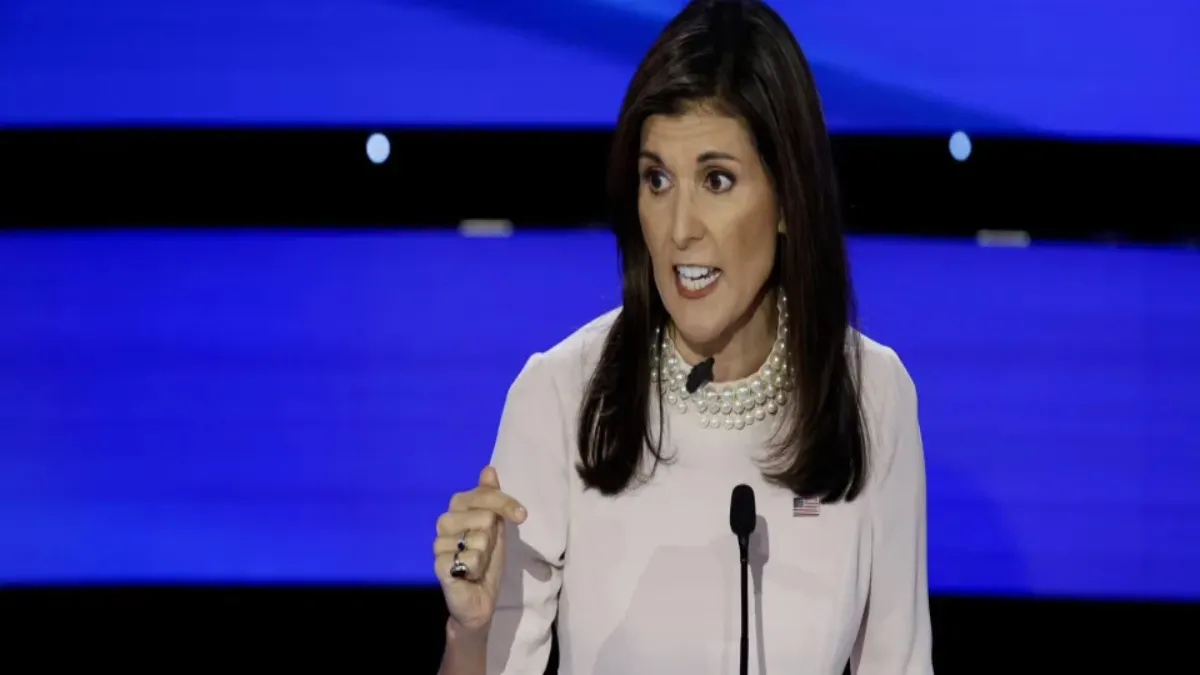The first Republican presidential primary debate of 2024 brought a key issue to the forefront – Social Security – and revealed a sharp divide among contenders, most notably between former South Carolina Governor Nikki Haley and Florida Governor Ron DeSantis. The crux of their disagreement centers on whether the retirement age should be raised for younger generations. This article explores the motivations behind Haley’s stance in favor of raising the retirement age and DeSantis’ fervent opposition, examining the potential implications for voters and the future of Social Security.
Haley’s Position:
Nikki Haley has been forthright about her openness to raising the retirement age for individuals in their 20s. During the Jan. 10 debate, when directly asked by moderator Jake Tapper if people in their 20s should anticipate working into their 70s, Haley affirmed, “They should plan on their retirement age being increased, yes.” While assuring current and imminent retirees that they will receive their full Social Security entitlement at the current retirement age of 67, Haley remained somewhat vague about the exact age she envisions for the increase. Her overarching goal, as she articulated, is to ensure that future generations, particularly children, will have a Social Security system that remains sustainable.
Rationale Behind Haley’s Stance:
Haley’s position is grounded in the current financial challenges facing the Social Security program. The 2024 Social Security and Medicare Trustees Reports indicate that, at the present funding levels, the Social Security fund will only be able to pay 100% of “scheduled benefits until 2033.” Beyond that point, the fund is projected to be “depleted,” resulting in a reduction to 77% of the total scheduled benefits for older Americans. Haley’s call for raising the retirement age for younger generations is, in part, a response to the looming insolvency threat that could compromise the fulfillment of future Social Security entitlements.
DeSantis’ Opposition:
Governor Ron DeSantis stands in staunch opposition to Haley’s proposal of raising the retirement age. During the debate, he emphasized that Social Security is not a welfare program and argued that individuals paying into the system throughout their lives deserve to receive their benefits without facing an extended working period. DeSantis’ position underscores the view that Social Security is an earned benefit rather than a form of government assistance.
Implications for Voters:
The clash between Haley and DeSantis on Social Security raises crucial questions for voters. The future of Social Security and how it will impact retirees and younger generations becomes a pivotal consideration. Voters must weigh the potential necessity of reforms to ensure the program’s long-term sustainability against the desire to uphold the commitments made to those who have contributed to Social Security throughout their working lives.
As the 2024 Republican primary unfolds, the debate over Social Security has emerged as a defining issue, illuminating a significant policy divide among contenders. Nikki Haley’s call for raising the retirement age reflects a concern for the program’s future viability, while Ron DeSantis staunchly defends the earned benefits of those who have contributed to Social Security over their careers. The outcome of this debate will not only influence the GOP nomination but also shape the broader conversation on the nation’s social safety net and fiscal responsibility.


